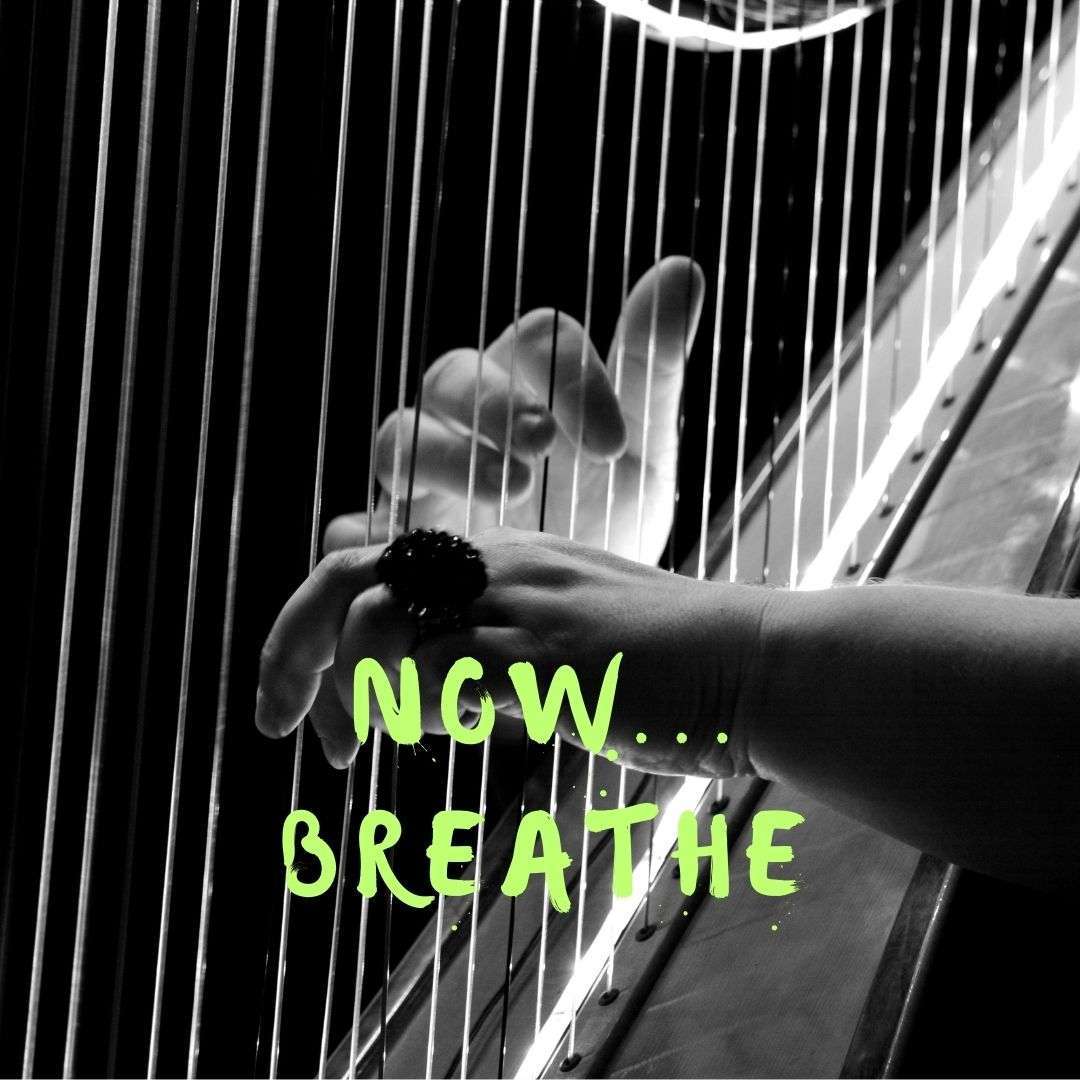Keep breathing
I think we could easily agree that playing requires concentration. A lot of concentration. Of course, some things make us concentrate harder than others. For instance, we have to really focus when we’re learning. Maybe when a tune is really well learned we don’t have to focus so much (or at least we feel like we have more brain capacity available). When we perform we probably focus carefully as well (at least we hope we will!).
One of the challenges of concentrating really hard is that when we do, many of us actually stop breathing (I can’t make this up). While you’re focused, you may hold your breath. When your brain is working hard, it gets busy and has a harder time of keeping all its plates spinning. Things like breathing can be one of those plates that gets dropped. (Don’t worry, the rest of your body will demand a breath when you really have to have one!). Of course, not breathing doesn’t make you think very well and all in all, it’s best if you can keep breathing.
The good news is that you can overcome this not breathing. You just need to practice doing it. Yes, even though you mostly don’t even think about breathing – you DO need to think about it if you’re not breathing consistently when you’re practicing (or performing).
When should you be breathing? Well, it’s best to breathe normally but if you notice you’re not (or your teacher points it out to you), you can add it to each tune or exercise! Here are a few ways to incorporate it so you can keep breathing:
Phrasing. If you’re learning by ear, you’re getting the tune in phrases. Phrasing might be easiest to understand in the context of singing because you must breathe (other blowing instruments are the same – no breathing, no playing). Phrasing is how the tune breathes, Watch (good) singers and you’ll notice that they never leave off in the middle of a word to take a breath – they breathe in “obvious” places…between the words. Just like they do, when your music calls for a breath (the end of a phrase) – take a breath. If you’re reading, you can still breathe at the end of a phrase – just remember to mark it!* When you’re practicing be certain that you breathe there and make it part of how you play the tune.
Mechanical. I’m not keen on this one, but it could work. In this approach you specifically incorporate breathing as a “movement” just like placing, closing, changing levers, and all the other movements of playing. I don’t like this because it’s not natural (which might interrupt your breathing rather than improving it) and because breathing is a very different type of movement. More importantly, this approach doesn’t support the music either. It doesn’t tie your breath to the phrasing (above) which could knock your musicality out of whack (and who doesn’t need more musicality).
Relax. You might hold your breath when you are stressed – so relax. You’ll get the tune, you’ll learn the melody, you’ll get the fingering! And your brain will be glad of the oxygen!
Pay attention. This is related to Mechanical, and it might seem silly – because we are paying attention….to something else! Like Mechanical, set yourself the additional task of paying attention to your breathing while you are concentrating on learning the music. Post a sign on your music stand or make some other reminder to keep it front of mind!
Breathing is fairly important when you’re learning and when you’re playing. Do you notice specific places you aren’t breathing? How do you remember to breathe? Let me know in the comments how you are going to keep breathing!
*If you’re not familiar with the marking, use an apostrophe above the treble staff to indicate where to take a breath (ok, it’s your music, use anything you’d like but the apostrophe is the standard marking).

Comments
2 responses to “Keep breathing”
as a singer, i understand breathing. the harp Wants you to do this!
besides, breathing is a very old habit- one that lasts as long as we do….
True…and yet, when we most need to be breathing, we hold our breath! It’s the paying attention that helps us over come it. ????